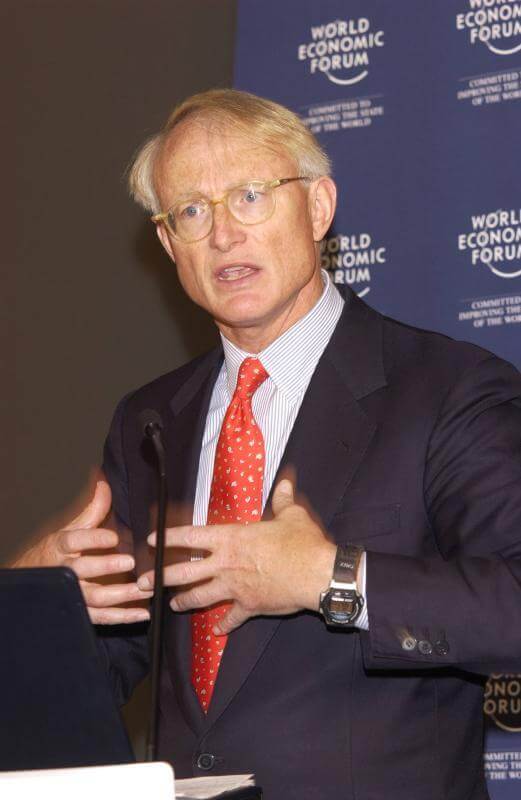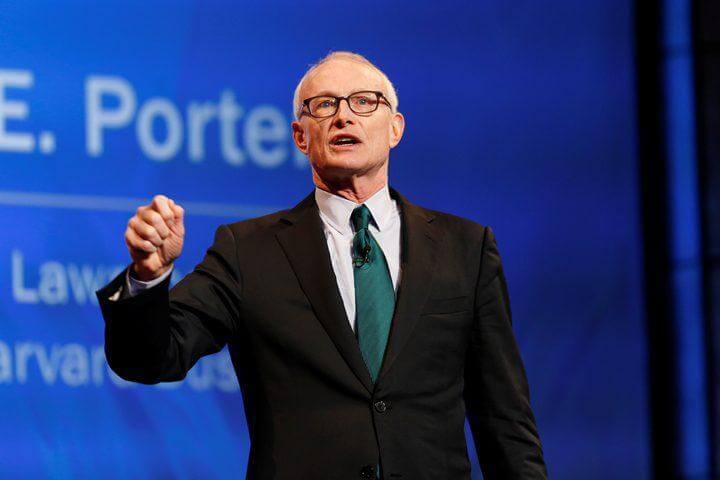Professor Porter throughout his career at Harvard Business School, has brought economic theory and strategy concepts to bear on many of the most challenging problems facing corporations, economies and societies, including market competition and company strategy, economic development, political competition, the environment, and health care. His approach is based on understanding the overall economics and structure of complex systems, in contrast to particular elements or parts. His extensive research is widely recognized in governments, corporations, NGOs, and academic circles around the globe. His research has received numerous awards, and he is the most cited scholar today in economics and business. While Michael Porter is at the core a scholar, his work has achieved remarkable acceptance by practitioners across multiple fields.
In 2000, Harvard Business School established the Institute for Strategy & Competitiveness to provide a home for his research. PDI Consulting takes pride in carrying the legacy of the Institute for Strategy & Competitiveness and holds its work to the highest standards.

Michael Porter’s early work was on industry competition and company strategy, where he was the pioneer in utilizing economic theory to develop a more rigorous understanding of industry competition and the choices companies make to compete. In addition to advancing his home field of industrial organization economics, Michael Porter’s work has defined the modern strategy field. His ideas, published in books and articles including Competitive Strategy (1980), Competitive Advantage (1985), and What is Strategy (1996) are taught in virtually every business school in the world as well as extensively in economics and other disciplines. His two Harvard Business Review articles, How Smart, Connected Products Are Transforming Competition (November 2014), and How Smart, Connected Products Are Transforming Companies (October 2015) address the role of information technology in strategy. Dr. Porter’s original work on industry structure, the value chain, and strategic positioning has informed much of his other research.
Dr. Porter next turned to economic development and competitiveness, where his work focused on the microeconomic underpinnings of national and regional economic development. His book The Competitive Advantage of Nations (1990) was the initial foundation of this body of work. This large body of work includes numerous theoretical and empirical papers on the concept of clusters and their impact on economic performance. He also created the Cluster Mapping Project, which pioneered the rigorous measurement of economic geography and has become the standard in the U.S., Europe, and a growing number of other countries. His theories are widely applied by both government policymakers and economic development practitioners globally.


Since 2011, as co-chair of the multiyear, non-partisan U.S. Competitiveness Project at Harvard Business School, Michael Porter has leveraged his expertise on competition and strategy to analyze the disappointing performance of the American economy. Dr. Porter’s fact-based effort has identified the structural causes of the long-term decline in U.S. competitiveness, as well as the steps needed by business and government to restore economic growth and shared prosperity (2016, Problems Unsolved and a Nation Divided, with Jan Rivkin, Mihir Desai, and Manjari Raman). As dysfunction in Washington continues to deliver poor results and high dissatisfaction with the U.S. political system, Dr. Porter has applied the lens of competitive forces in industry to uncover its root cause—failure of political competition—and proposed reforms necessary to align the political system with the public interest (2017, Why Competition in the Politics Industry Is Failing America, with Katherine Gehl).
In environmental policy, Dr. Porter proposed the “Porter Hypothesis” in the early 1990s, which put forward the novel theory that strict environmental standards were not in conflict with company profitability or national competitiveness but could enhance both. The Porter Hypothesis has given rise to several hundred scholarly articles in the literature on environmental economics.
Dr. Porter also developed a body of work on the role of corporations in society. His ideas have changed the way companies approach philanthropy and corporate social responsibility. His 2011 paper with Mark Kramer introduced the concept of creating shared value that shows how capitalism itself can be the best route to real solutions to many social problems. Michael Porter also led the development of the conceptual framework underlying the Social Progress Index, the most comprehensive effort ever to measure social progress. First released in 2014 and now covering 133 countries, the Index rigorously measures each country’s social progress across multiple dimensions to complement traditional measurement focused solely on economic performance and GDP per capita.
PDI Consulting serves as a knowledge platform for ideas and collaboration. We work with our partners to leverage best practices, innovative approaches, and strategic connections to build on the ground impact.



